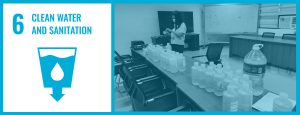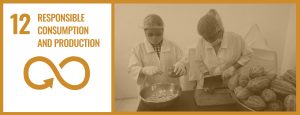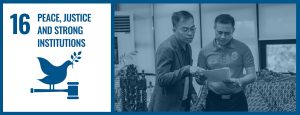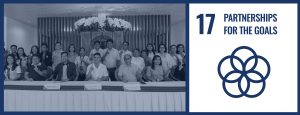2024 Reports | SDG 6 – Clean Water and Sanitation

WATER USAGE AND CARE
Waste Water Treatment
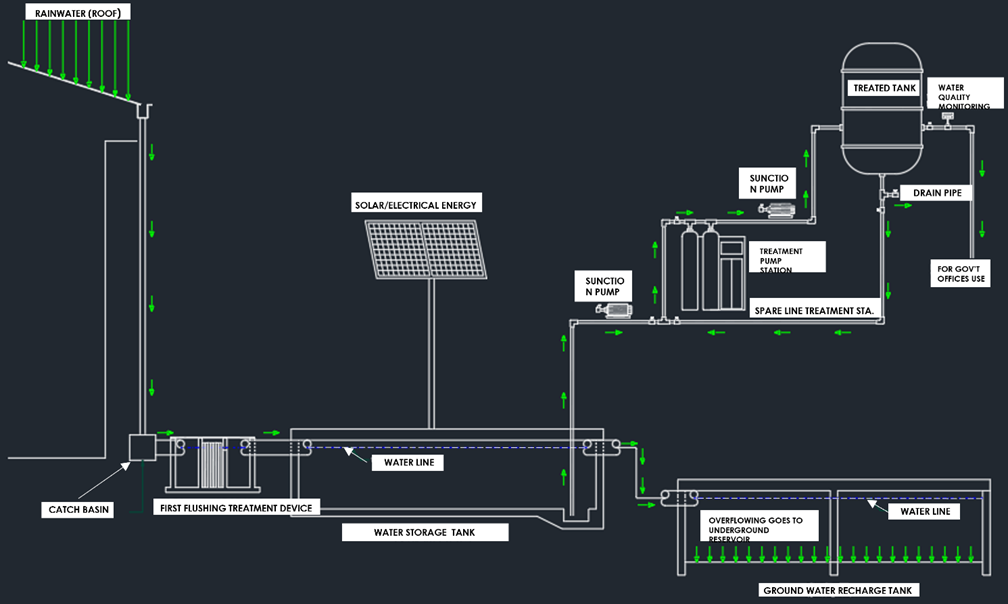
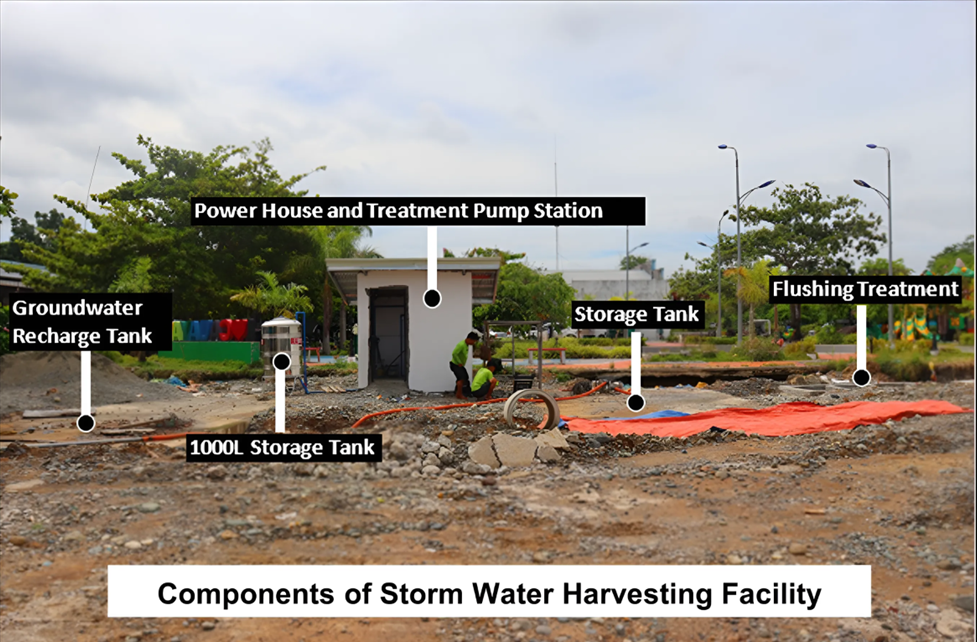
In its continuing commitment to the United Nations Sustainable Development Goal 6 (Clean Water and Sanitation), Isabela State University, through its Smart Water Infrastructure and Management (SWIM) Program, has partnered with the Local Government Unit of Cauayan City to establish a pioneering stormwater harvesting and artificial groundwater recharge facility. The system, inaugurated in April 2024 during the International Smart and Sustainable Cities and Communities Exposition and Networking Engagement (iSCENE), is among the first of its kind in the region.
The facility captures stormwater runoff and passes it through a filtration system, ensuring that the water is treated before use. The treated water is then reused on-site for toilet flushing, landscape irrigation, and other non-potable purposes, reducing pressure on freshwater demand across the campus and the community. Excess water is directed to an artificial groundwater recharge system, where it replenishes aquifers for long-term availability.
To safeguard water quality, the project integrates real-time groundwater monitoring sensors. These sensors track water levels and detect potential contaminants, ensuring safe reuse and sustainable management of the resource. Training and capacity-building workshops were also conducted for ISU staff and local personnel to equip them with the knowledge and skills to maintain the facility and interpret monitoring data.
The facility captures stormwater runoff and passes it through a filtration system, ensuring that the water is treated before use. The treated water is then reused on-site for toilet flushing, landscape irrigation, and other non-potable purposes, reducing pressure on freshwater demand across the campus and the community. Excess water is directed to an artificial groundwater recharge system, where it replenishes aquifers for long-term availability.
In a significant step toward sustainable urban water management, Isabela State University, in partnership with the LGU of Cauayan City, has installed a stormwater harvesting and artificial recharge system, integrated with a filtration unit and groundwater monitoring sensors. This project treats the urban runoff through a filtration system and reused on-site for non-potable purposes such as toilet flushing, plant watering, and facility maintenance.
Excess water is sustainably recharged into aquifers, with monitoring sensors ensuring water quality and safe reuse. This initiative reduces pressure on freshwater demand, minimizes untreated discharge, and promotes circular water use on and off campus. The project illustrates ISU’s commitment to responsible wastewater treatment and reuse practices, focusing on improving water quality through enhanced wastewater management and safe reuse.
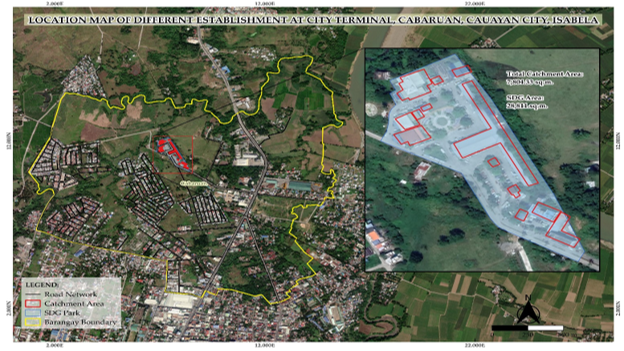
Preventing Water System Pollution and Safeguarding Water Quality
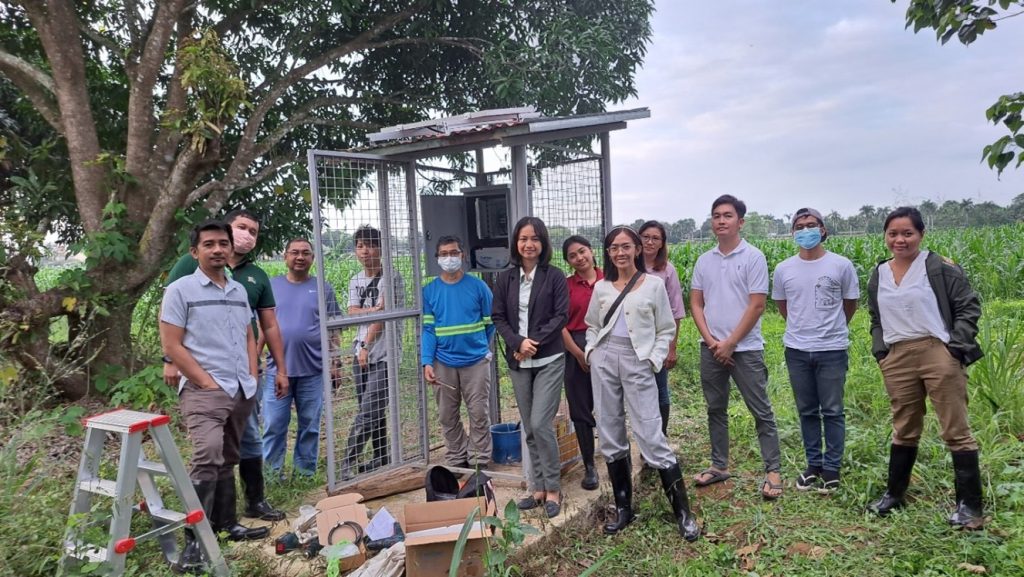
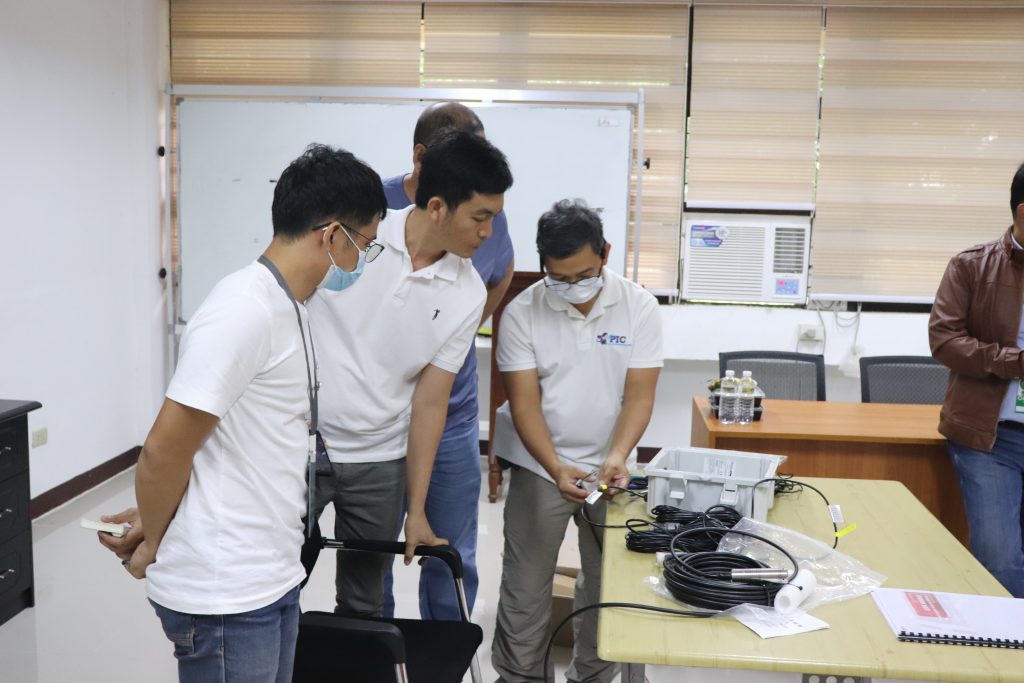
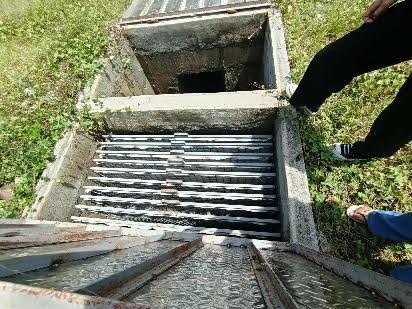
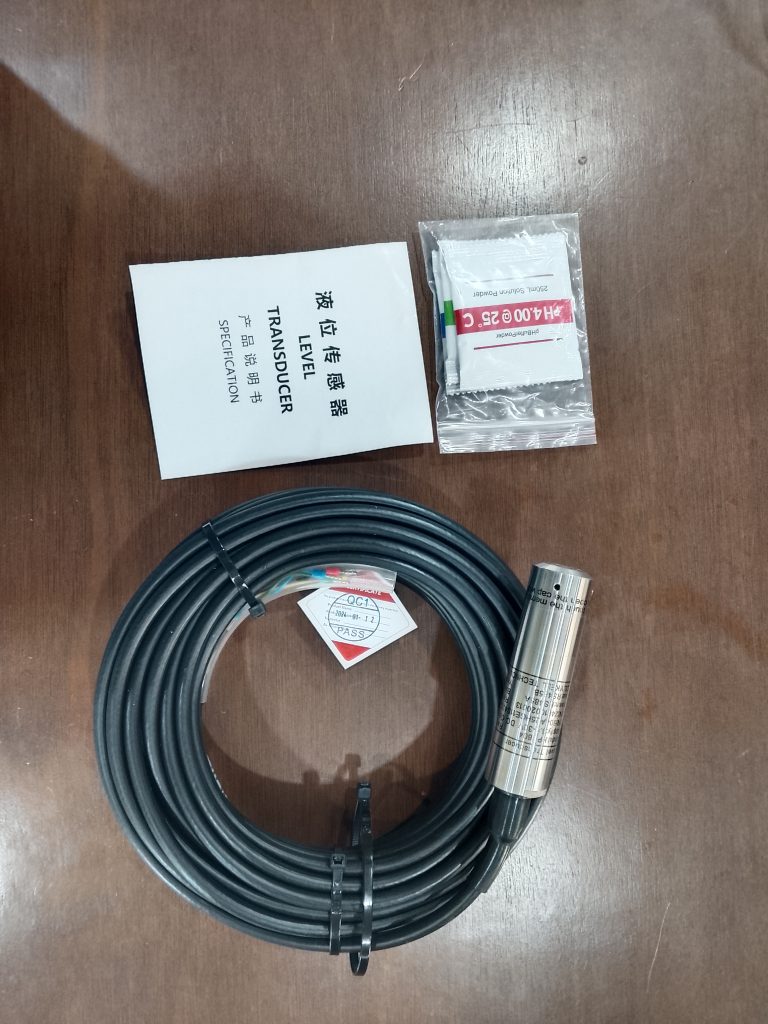
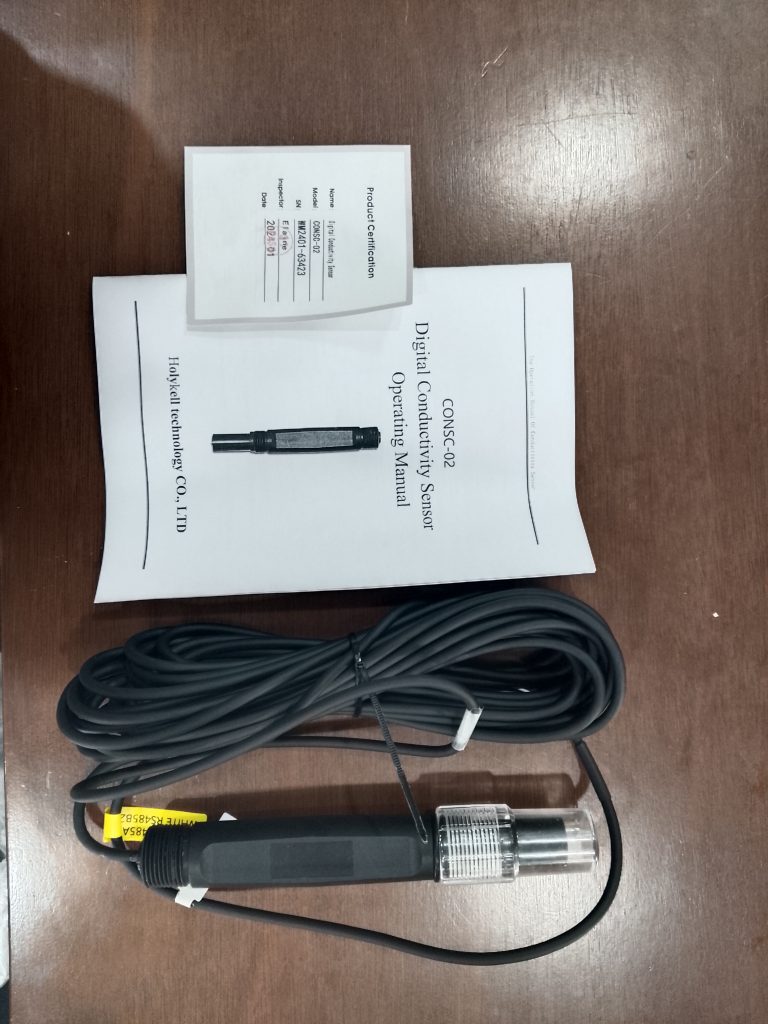
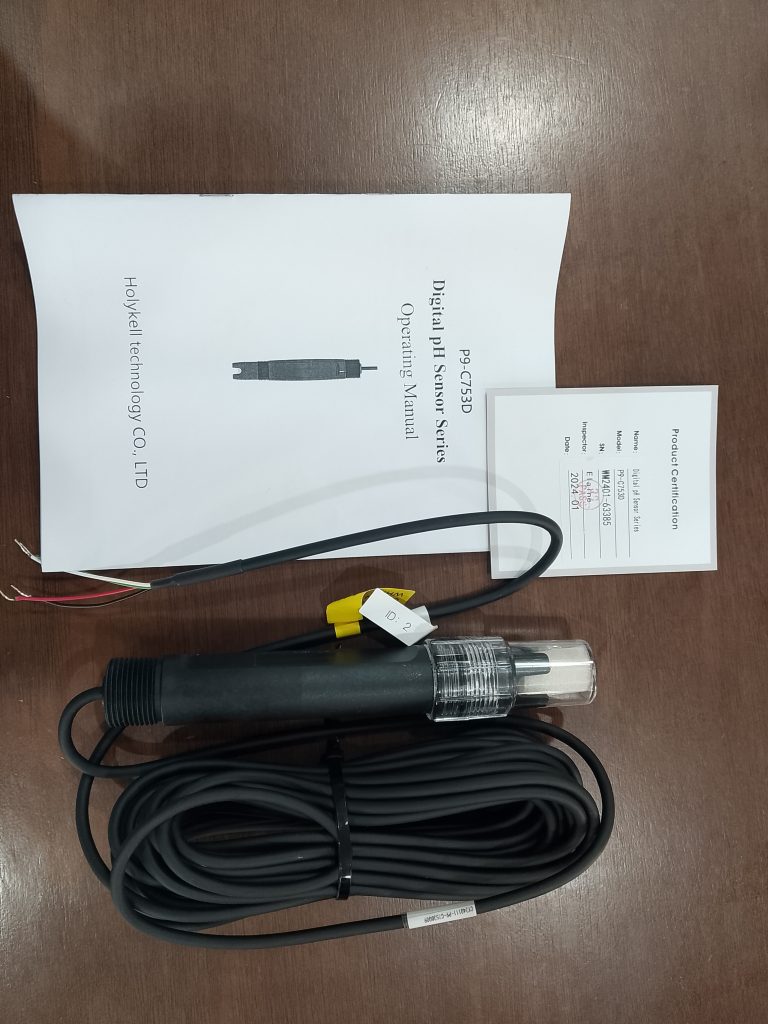
In its continuing mission to promote sustainability and protect community health, the university has taken a proactive step toward safeguarding the quality of its water sources. Through the Smart Water Resources Planning and Monitoring (SWIM) Project, funded by the Department of Science and Technology (DOST), the university has begun installing groundwater monitoring sensors across its campus and in selected municipalities in the region. These advanced sensors continuously track vital water quality indicators such as pH level, temperature, electrical conductivity, total dissolved solids (TDS), salinity, and water level. The data collected serve as a scientific foundation for assessing water safety and identifying potential contamination risks before they escalate into major environmental issues.
Regular monitoring provides not only valuable research data but also a preventive system, allowing the university and local communities to act swiftly in protecting potable water sources. Beyond technology, this initiative reflects a deep sense of environmental stewardship and responsibility toward the people it serves.
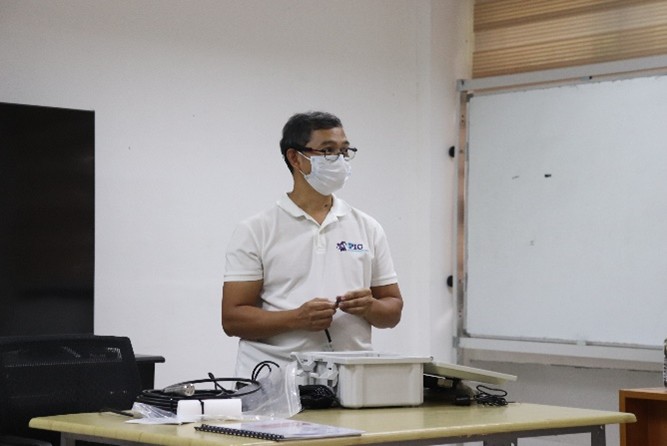
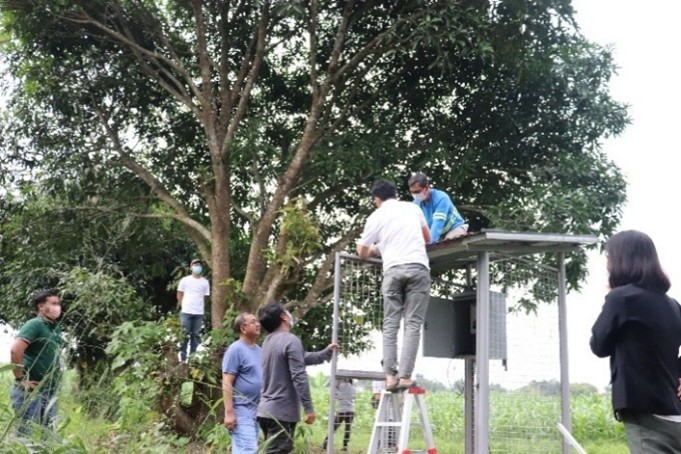
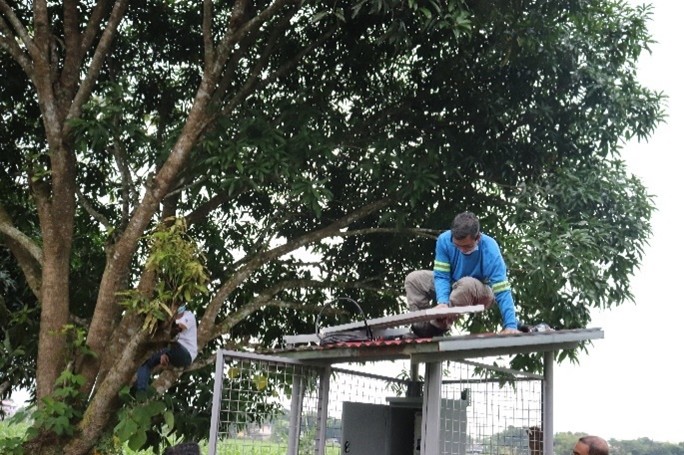
Public Access to Free Drinking Water Dispensers
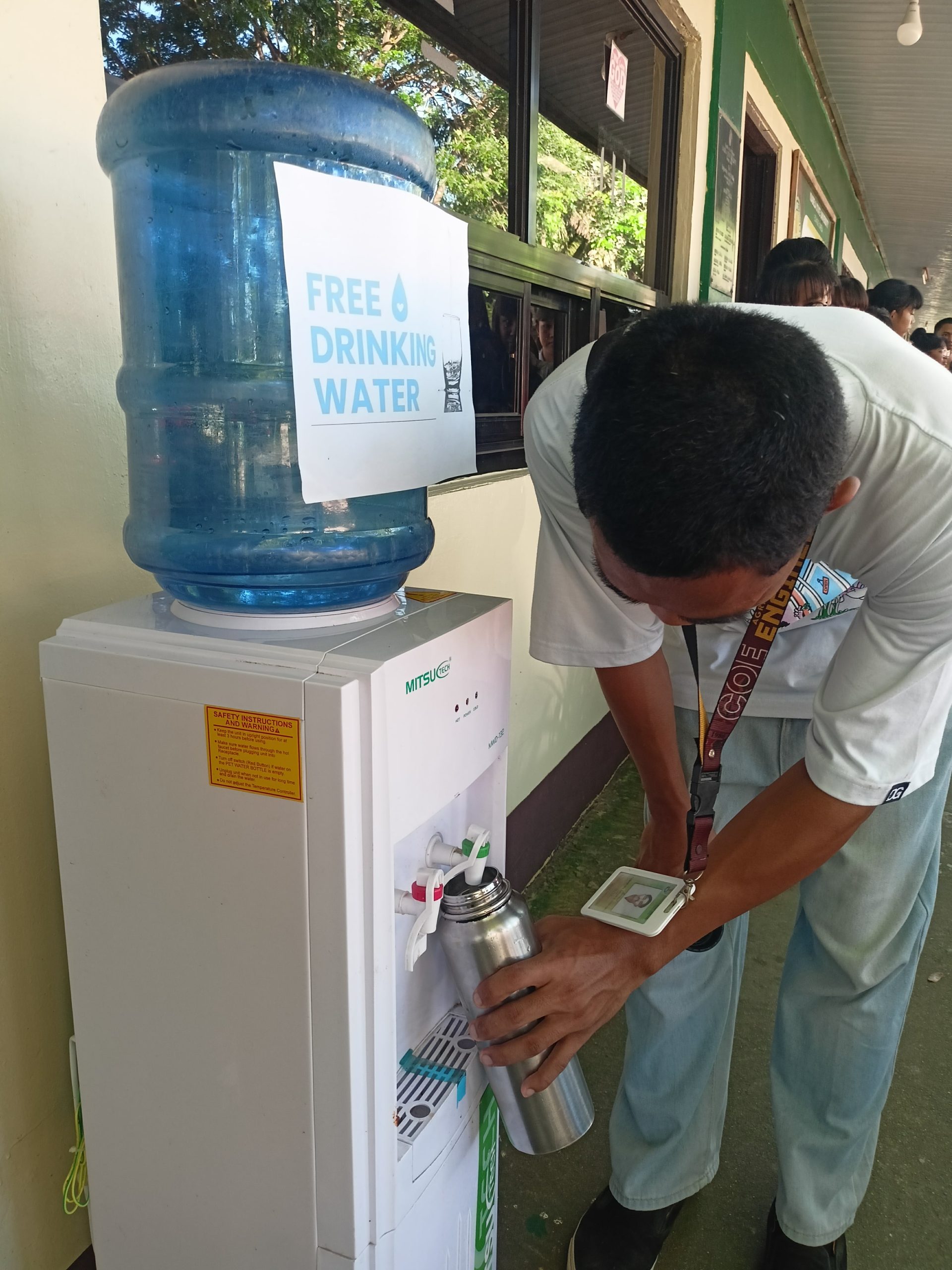
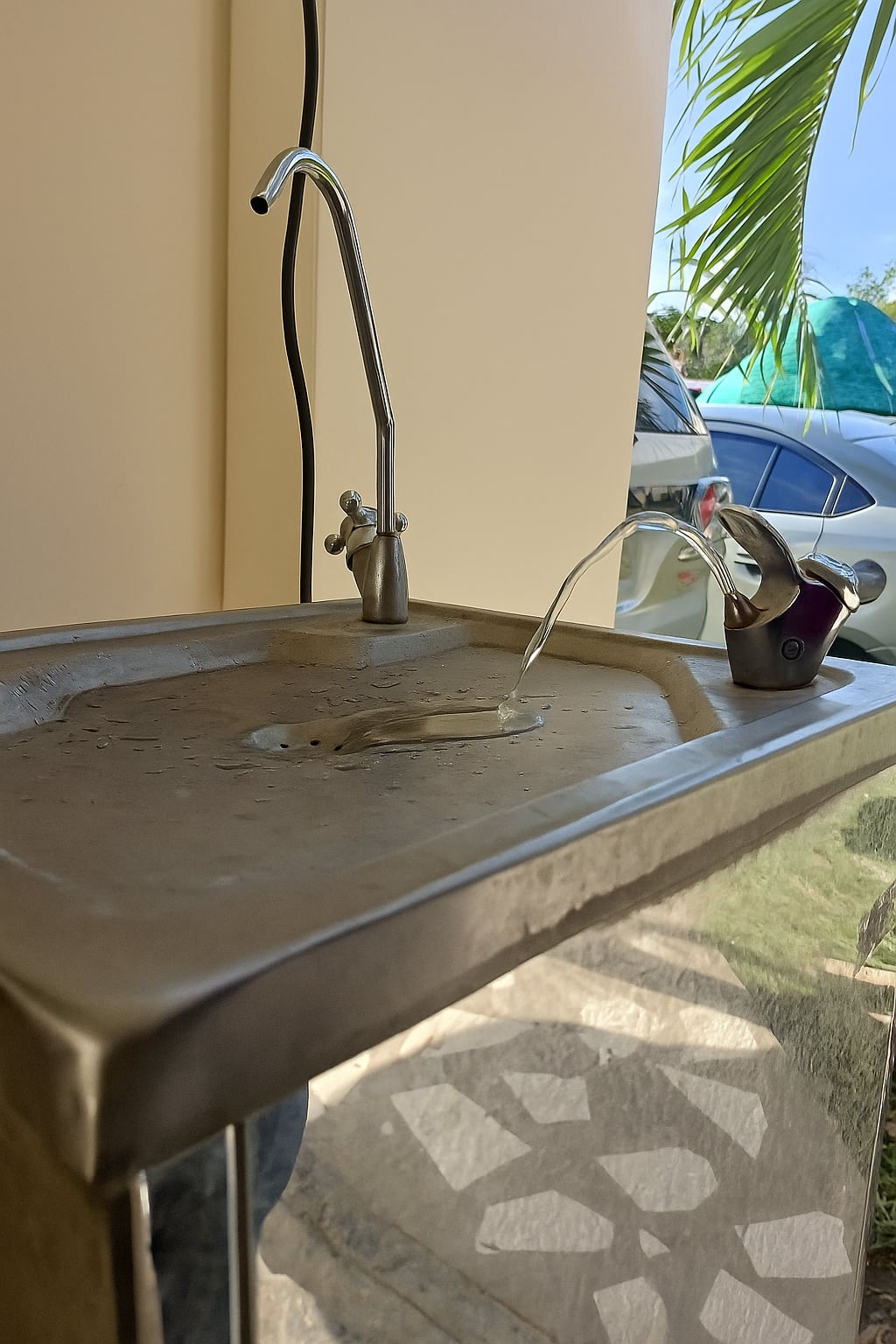
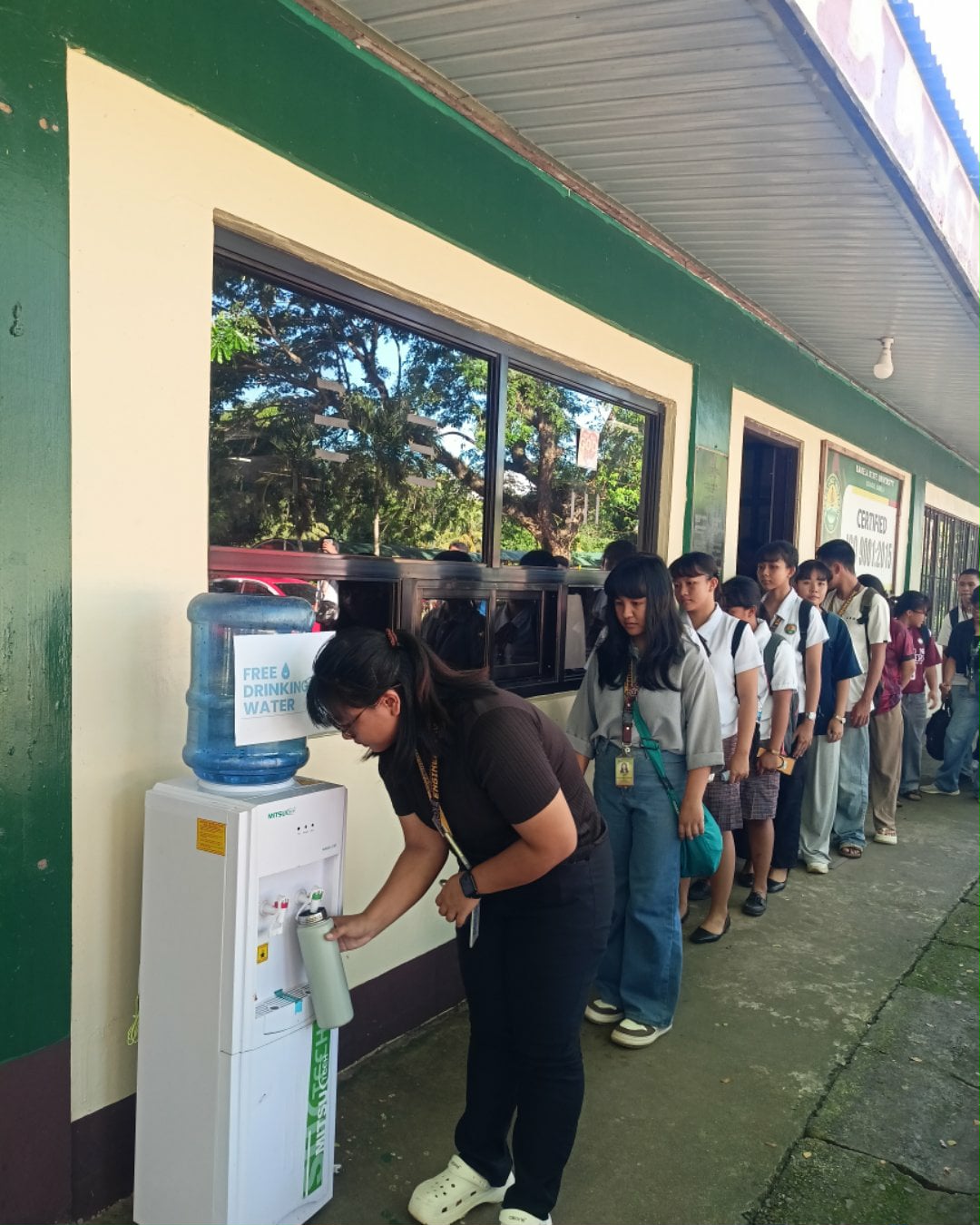
At the heart of the university’s commitment to sustainability and community well-being is the installation of free drinking water fountains and dispensers are placed across the campus. These facilities ensure that students, faculty, staff, and visitors have access to clean and safe drinking water anytime, promoting hydration and well-being within the university community. By encouraging the refilling of reusable containers instead of single-use plastic bottles, the university actively promotes waste reduction and responsible consumption. Through these efforts, the university not only supports the health of its people but also reinforces its role as a leader in sustainable practices.
Water-Conscious Building Standards
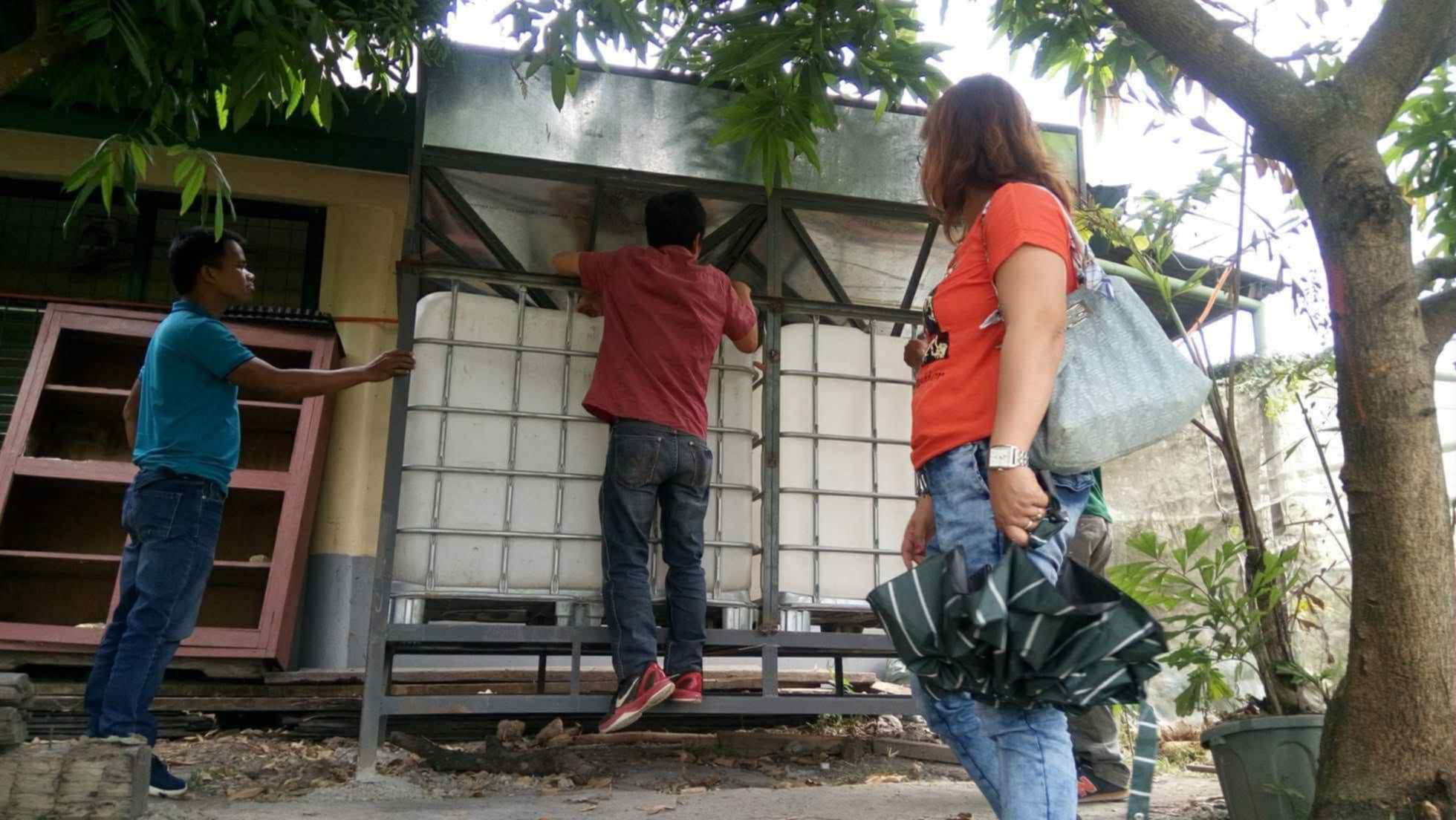
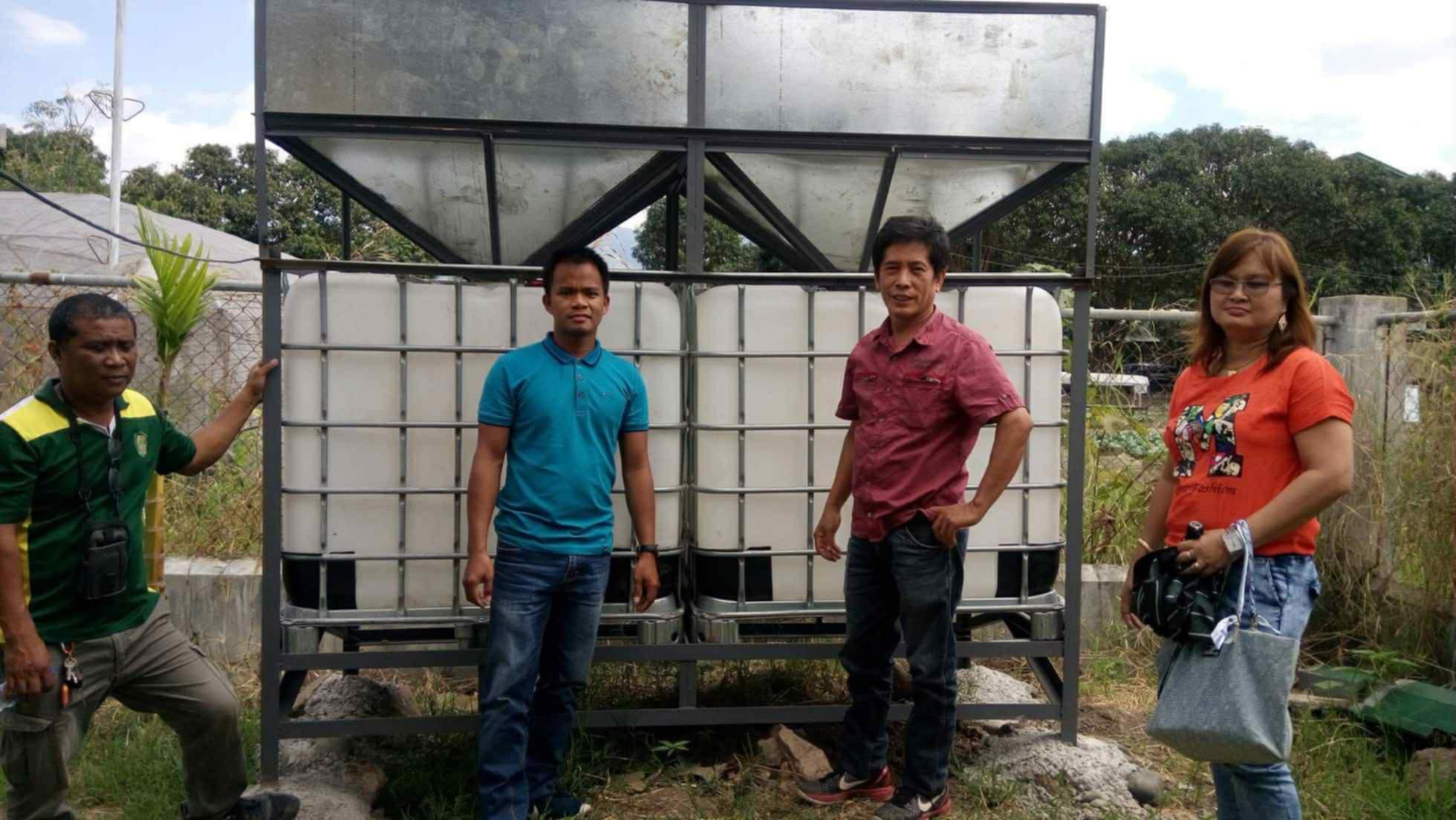
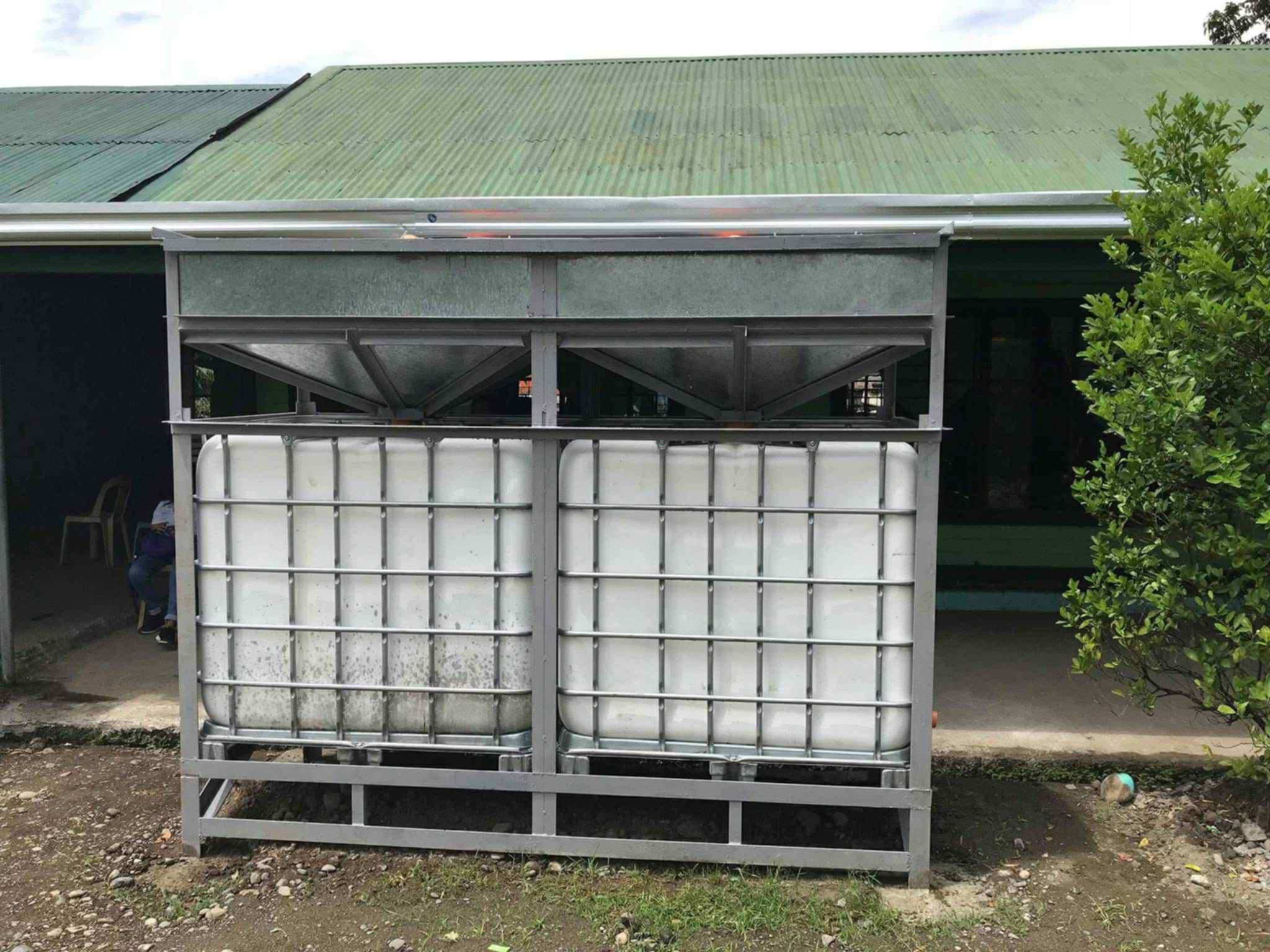
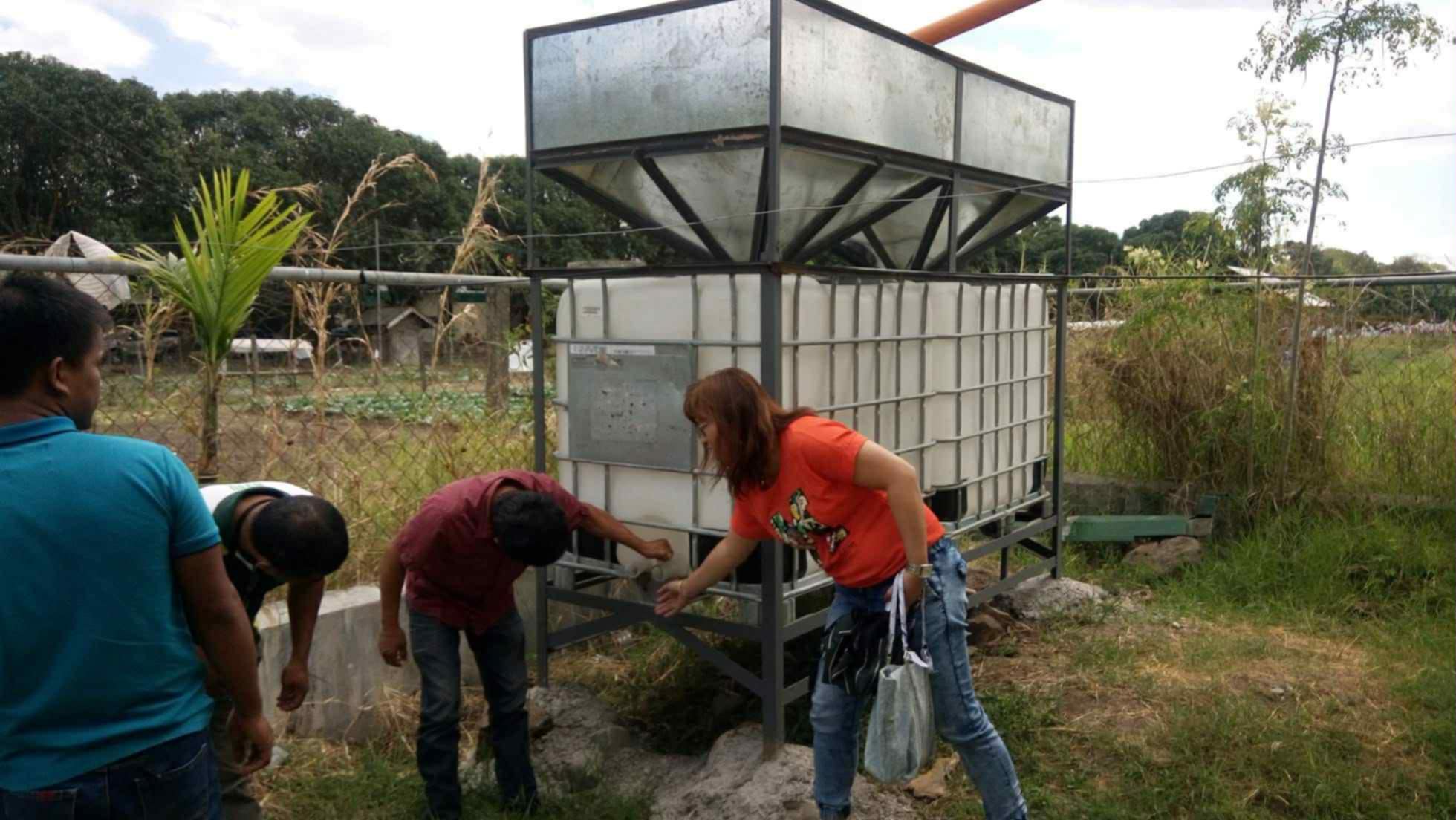
ISU implements water-conscious building standards as a key component of its sustainability framework. University engineering buildings are designed with rainwater harvesting systems, enabling the reuse of water for irrigation and toilet flushing. The university supports this, through the installation of water-efficient fixtures such as low-flow faucets and dual-flush toilets which promotes the efficient water use and sustainability within the campus. By embedding these water-conscious measures into design and maintenance of the university facilities, ISU advances its institutional commitment to water sustainability, promoting efficient water use and infrastructure innovation.
Water-Conscious Planting to Minimize Water Usage
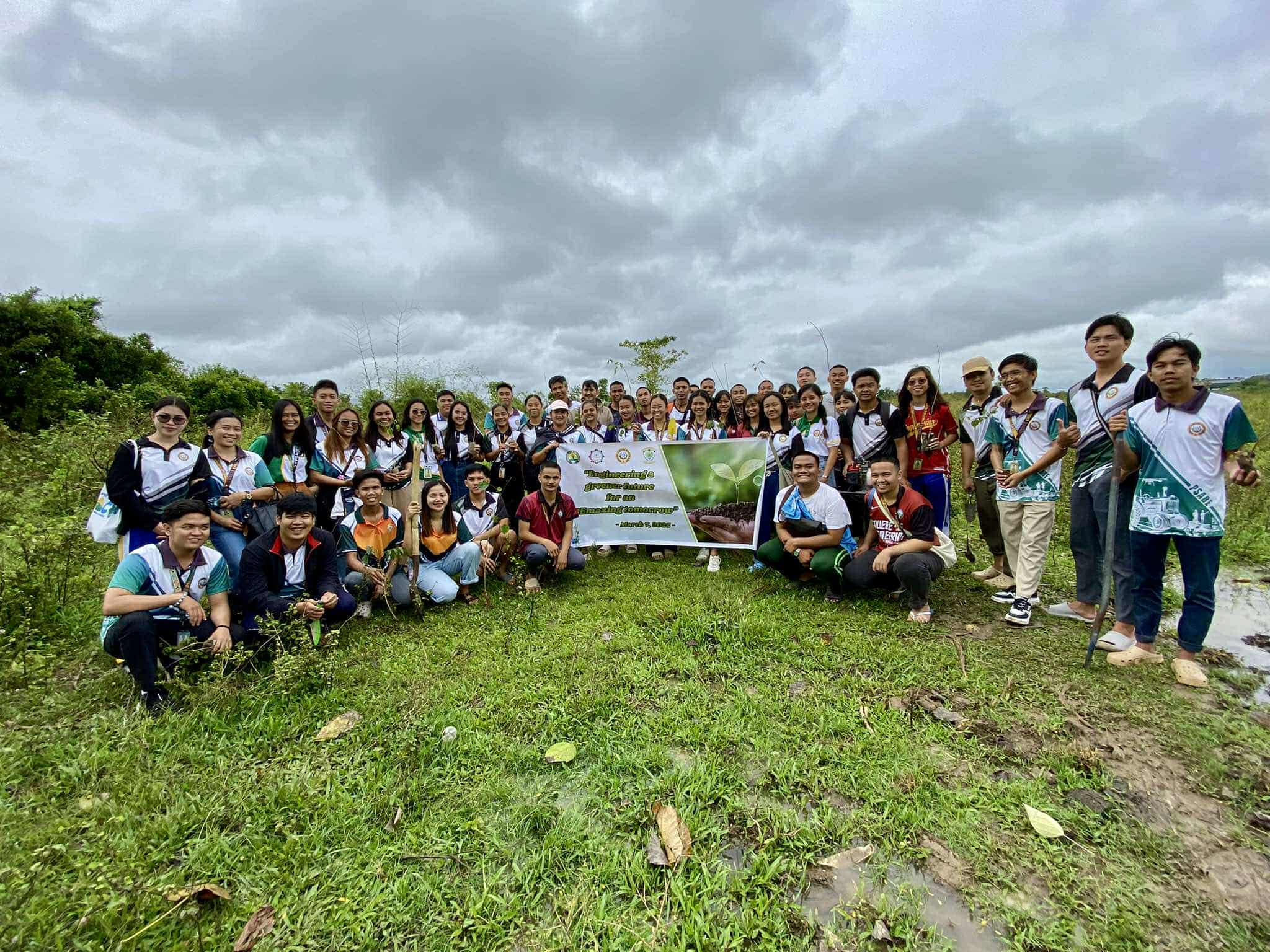
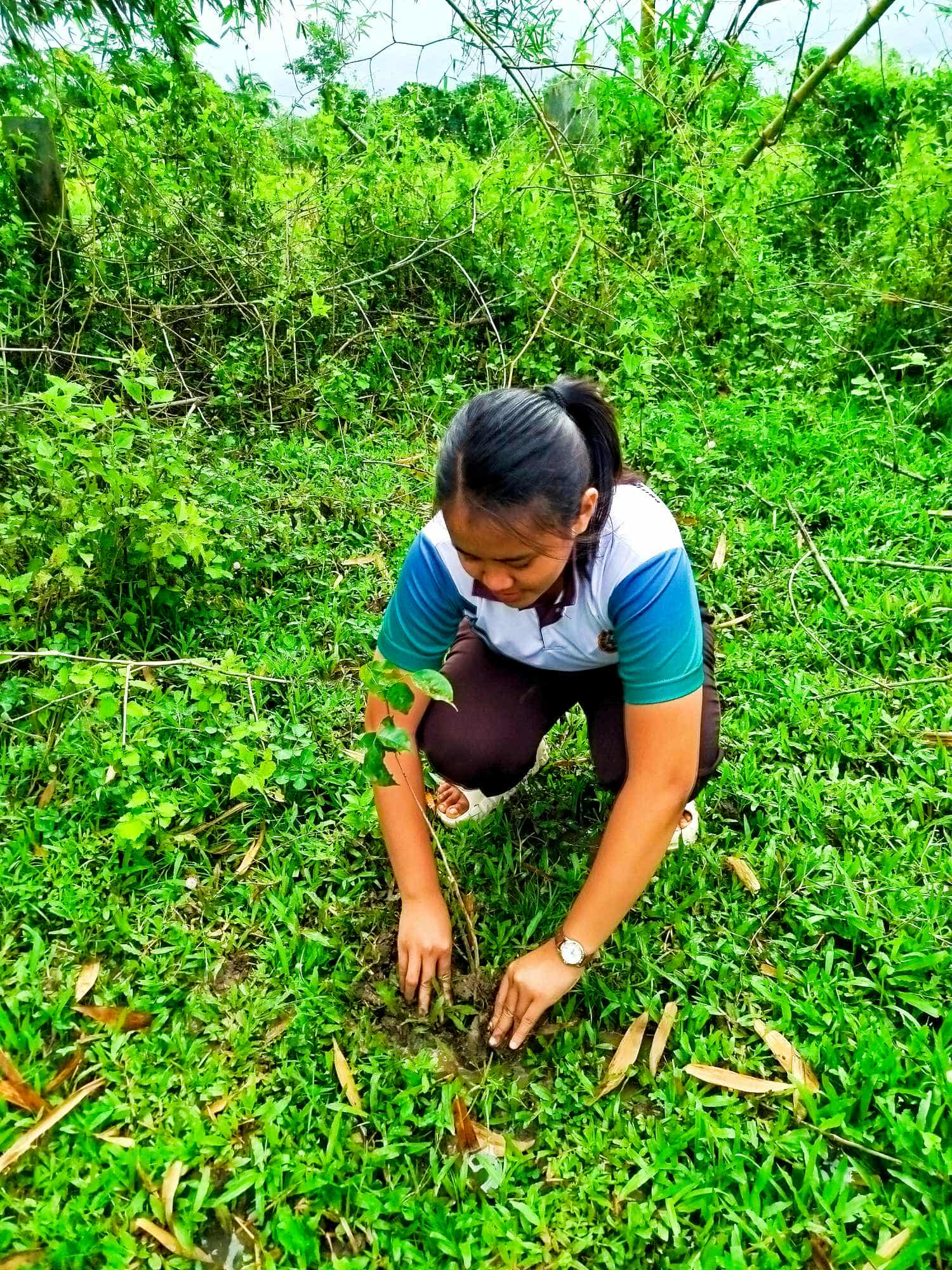
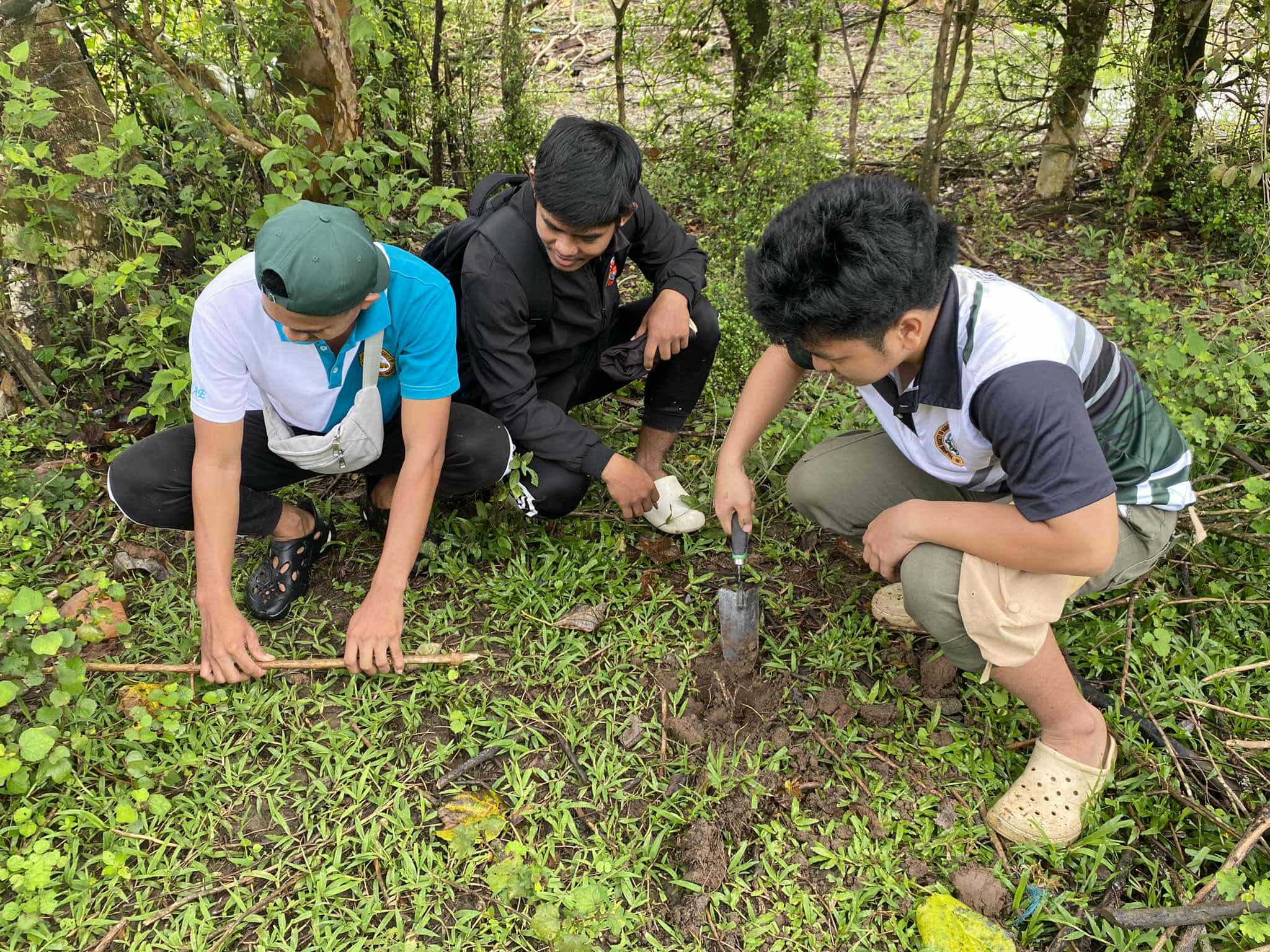
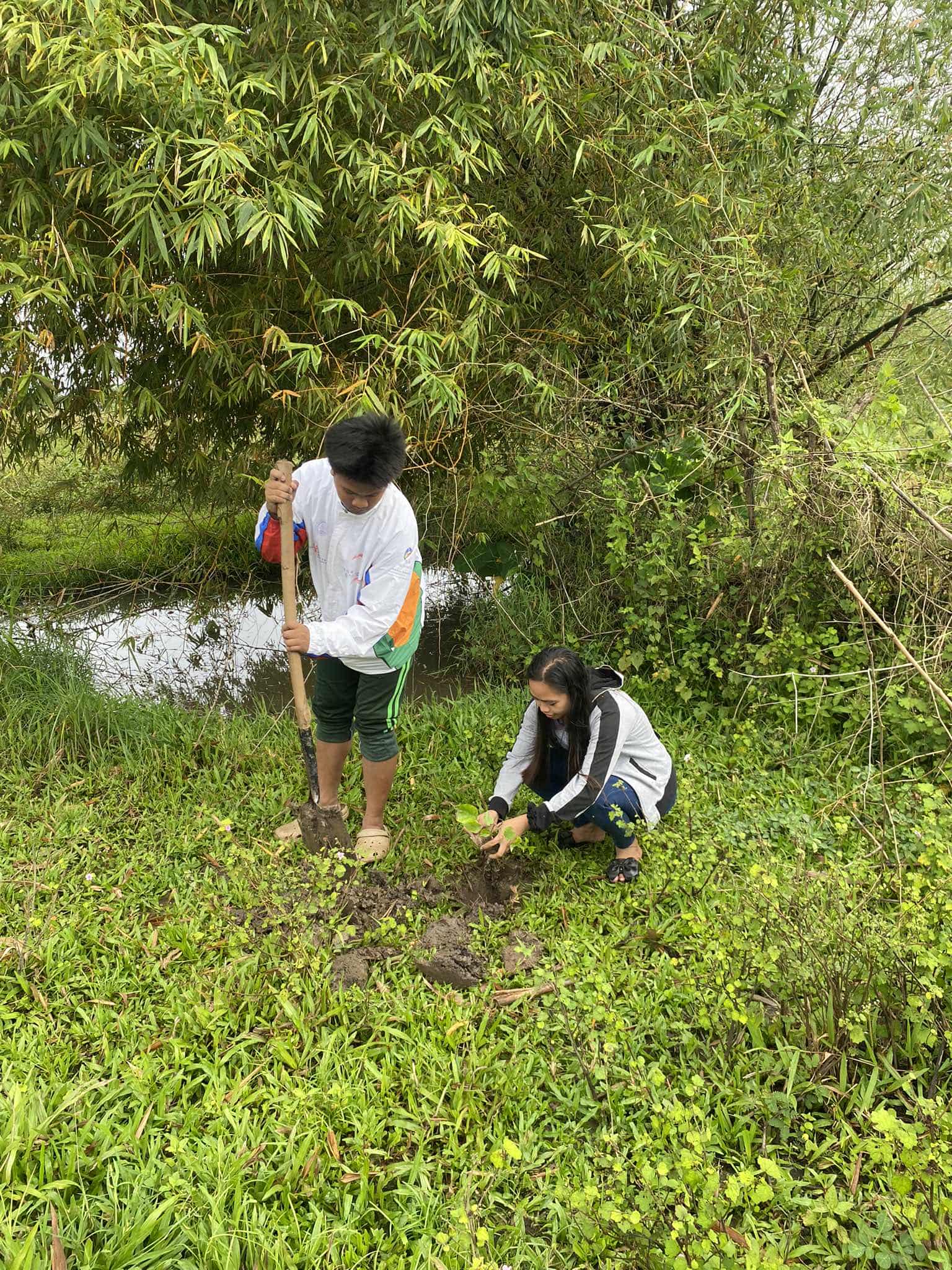
Effective water management is a critical component of sustainable development. The university has embraced water-conscious planting on and off-campus. The Philippine Society of Agricultural and Biosystems Engineers ISU-Chapter Group (PSABE-ISU) has taken the lead role in advancing water-conscious practices by successfully planting 70 Narra trees (Pterocarpus indicus), known for its drought-tolerant characteristics. Align with this, the university is expanding its water-conscious planting initiatives by planting foxtail palm and fan palm trees to reduce irrigation demands while supporting climate change mitigation.
This planting strategy illustrates the university’s commitment to sustainable water management and environmental stewardship by minimizing water usage in landscape design and operation.
WATER IN THE COMMUNITY
Water Management Educational Opportunities
As the Isabela State University consistently thrives in its quest to establish sustainable communities, the university promotes water-conscious practices as they took the center stage during the International Smart and Sustainable Cities and Communities Exposition (iSCENE) on April 12, 2024.
Through its SWIM Program, ISU presented projects on water resources planning, flood control infrastructure, and monitoring systems that directly address water security and resilience. The event gathered LGUs, national agencies, researchers, and partner universities, fostering dialogue on water conservation, urban drainage, and flood management. Presentations, technology demonstrations, and an open forum allowed communities and stakeholders to learn practical measures for sustainable water use. The signing of MOUs with LGUs and partner institutions further reinforced ISU’s advocacy for responsible water management and capacity-building. By communicating these efforts publicly, ISU highlights its leadership in promoting water-conscious behavior both on campus and in the broader community.

Promoting Conscious Water Usage on Campus and in the Wider Community
Isabela State University (ISU) and the Smart Water Infrastructure and Management (SWIM) R&D Center formally turned over a Comprehensive Water Resources Management Plan to the Province of Batanes through the Municipality of Basco on April 18, 2024 at the Batanes State College (BSC) Academic Management Building.
With population and climate putting much pressure on water sustainability for crop production, energy generation, and domestic supply, the said R&D Center found that there is much interest to assess water resources in consideration of socio-economic factors, increasing demands from various sectors, expansion of irrigation services, and the effect of climate change. The long-term strategic document that was turned over by the University outlined the management of the Batanes province water resources. It considered current and future water demands, water supply sources, and the infrastructure needed to meet the demands.
In addition, the crafted comprehensive water resources management plan addressed a variety of issues related to the management of water resources including: assessment of water resources, water demand and use, water allocation, water supply and distribution, watershed management, flood and drought management, environmental protection, and integrated water resources management.
After the assessments, the management plan presented a newly-developed comprehensive water resources assessment framework that will serve as a basis for the designs and implementation of water-related projects and interventions in Region 2 (Cagayan Valley).
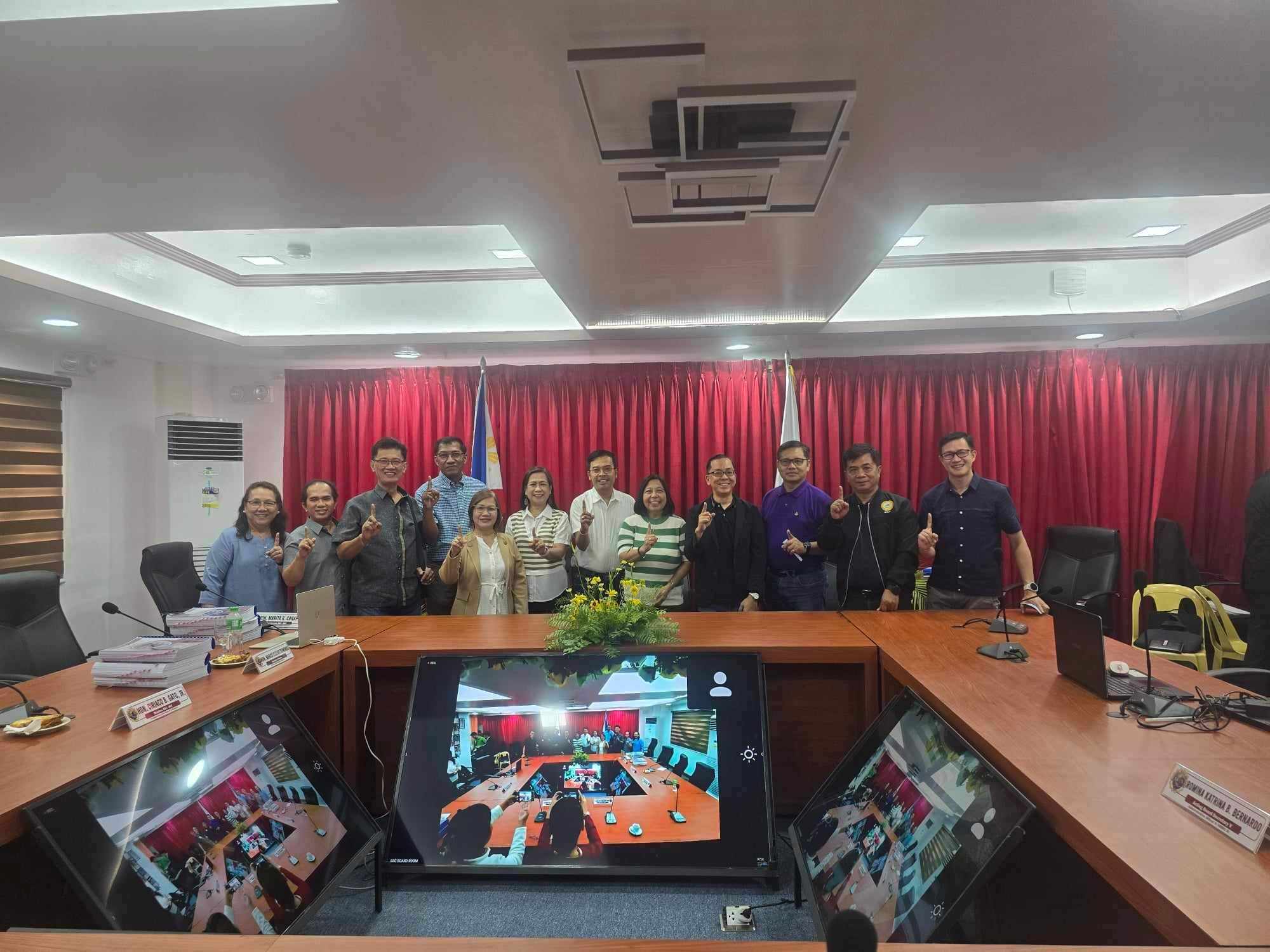
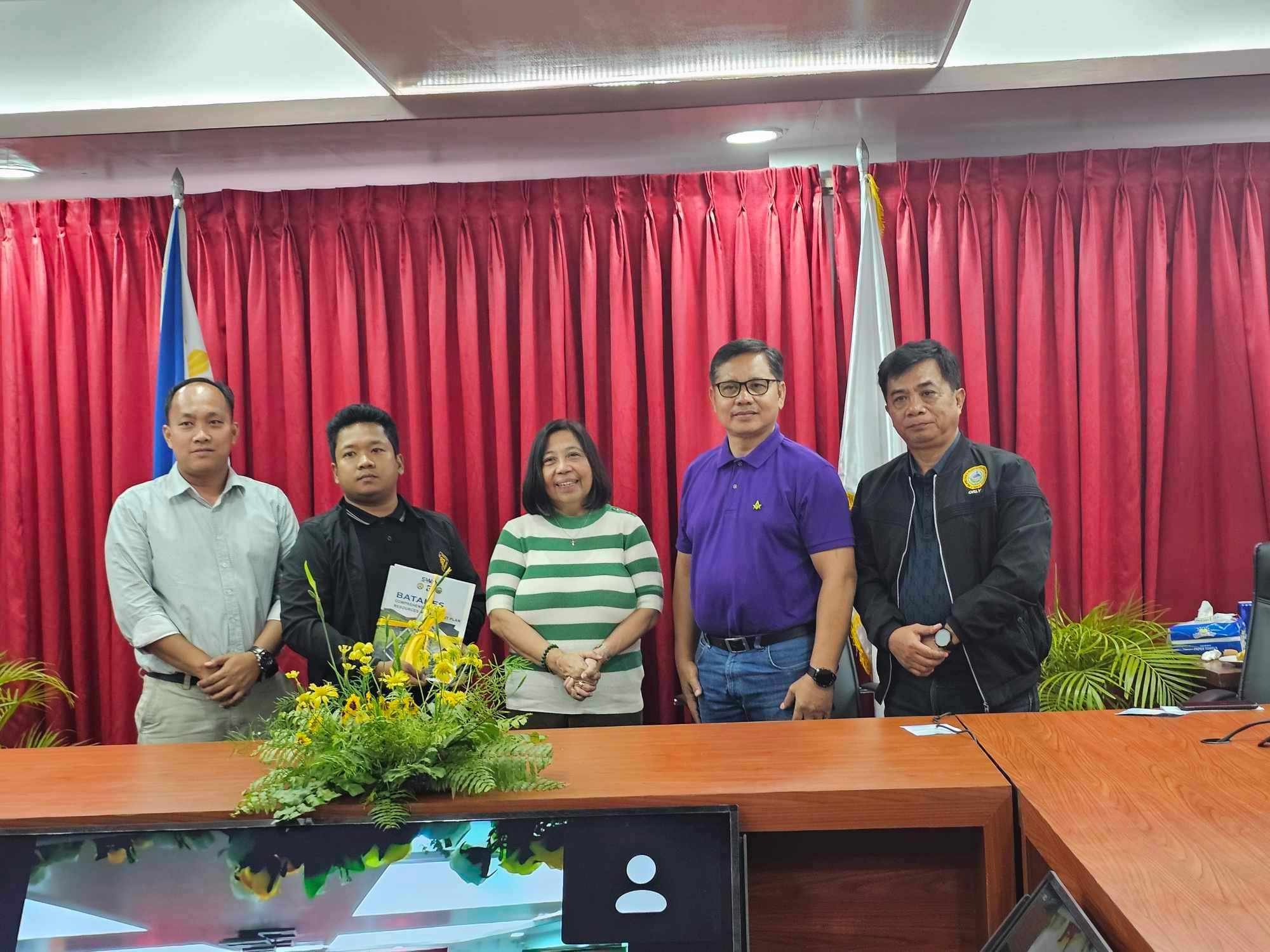
Off-Campus Water Conservation Support
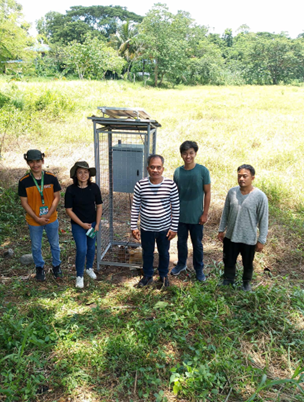
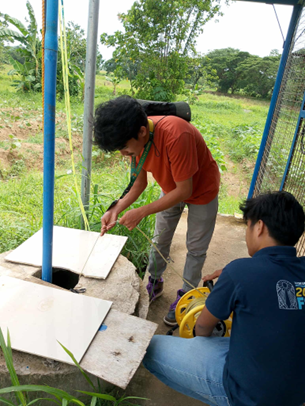
Isabela State University extends its water conservation efforts beyond the campus by successfully installing groundwater monitoring sensors in Cordon, Isabela through its SWIM Program on September 25, 2024 to enhance sustainable water use and management across the province.
.The technical team, together with LGU personnel, assembled and installed the solar-powered system, including sensors, batteries, wiring, and instrument housing. Local staff received on-site training on system operation and troubleshooting, ensuring long-term sustainability. The collaboration with the LGU underscores ISU’s approach of pairing technology with local empowerment, allowing communities to monitor and manage their own groundwater resources effectively. This initiative prevents resource depletion and strengthens awareness of sustainable water use at the municipal level. By extending advanced water monitoring solutions and capacity-building activities outside its grounds, ISU demonstrates active promotion of off-campus water conservation efforts.
Sustainable Water Extraction on Campus



ISU demonstrated its leadership in sustainable water resource management by inaugurating groundwater monitoring sensor and stormwater harvesting facility in Cauayan City, advancing sustainable water extraction practices as part of the iSCENE on April 12, 2024, highlighting the university’s commitment to advancing water extraction technologies for urban resilience.
The facility, installed and maintained by the ISU Smart Water Infrastructure and Management (SWIM) technical team, combines solar power and IoT-based monitoring to ensure efficient tracking of groundwater levels and quality. The project was formally recognized during a ribbon-cutting led by the DOST Secretary, ISU leadership, and LGU officials, underscoring national commitment to sustainable resource management. By coupling monitoring technology with stormwater harvesting, the facility reduces reliance on aquifers and promotes sustainable extraction both on and off campus. The initiative not only demonstrates ISU’s technical innovation but also its leadership in applying research-based solutions for urban water resilience. These efforts exemplify how ISU integrates sustainable water extraction technologies into practice.
Cooperation on Water Security
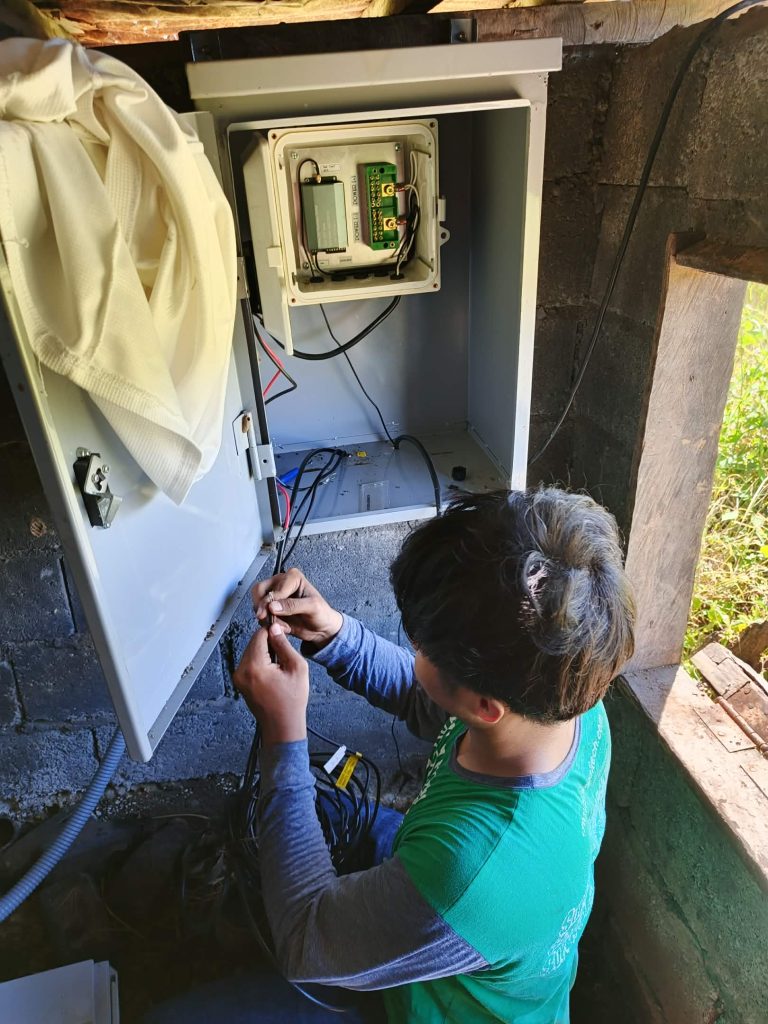
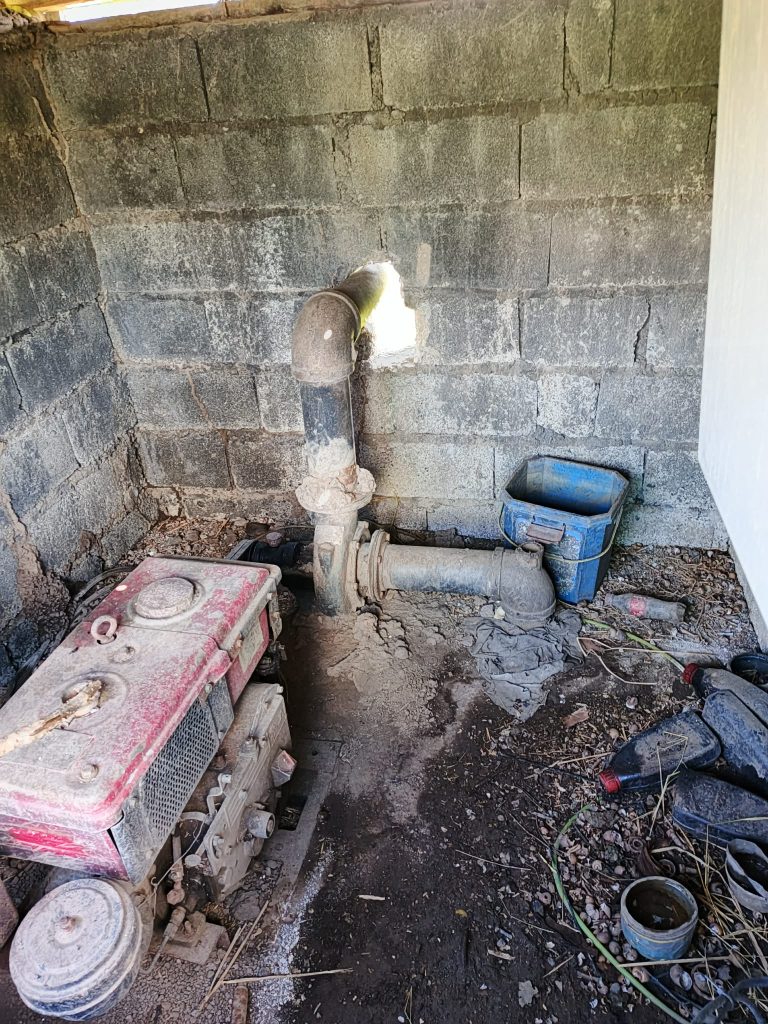


Isabela State University (ISU) actively cooperated with the Local Government Unit of Luna, Isabela, in the installation of a groundwater monitoring sensor on December 11, 2024. The SWIM technical staff worked alongside LGU representatives to assemble and deploy the solar-powered, IoT-based system for real-time groundwater monitoring. To ensure sustainability, ISU trained local personnel on maintenance, system restart, and troubleshooting. This joint effort highlights how the university integrates advanced technology with local governance, empowering municipalities to manage groundwater responsibly. The partnership demonstrates ISU’s role in bridging research, technology, and governance to address shared water security challenges in the province. Such initiatives underscore the university’s commitment to cooperation with local governments on water security.







